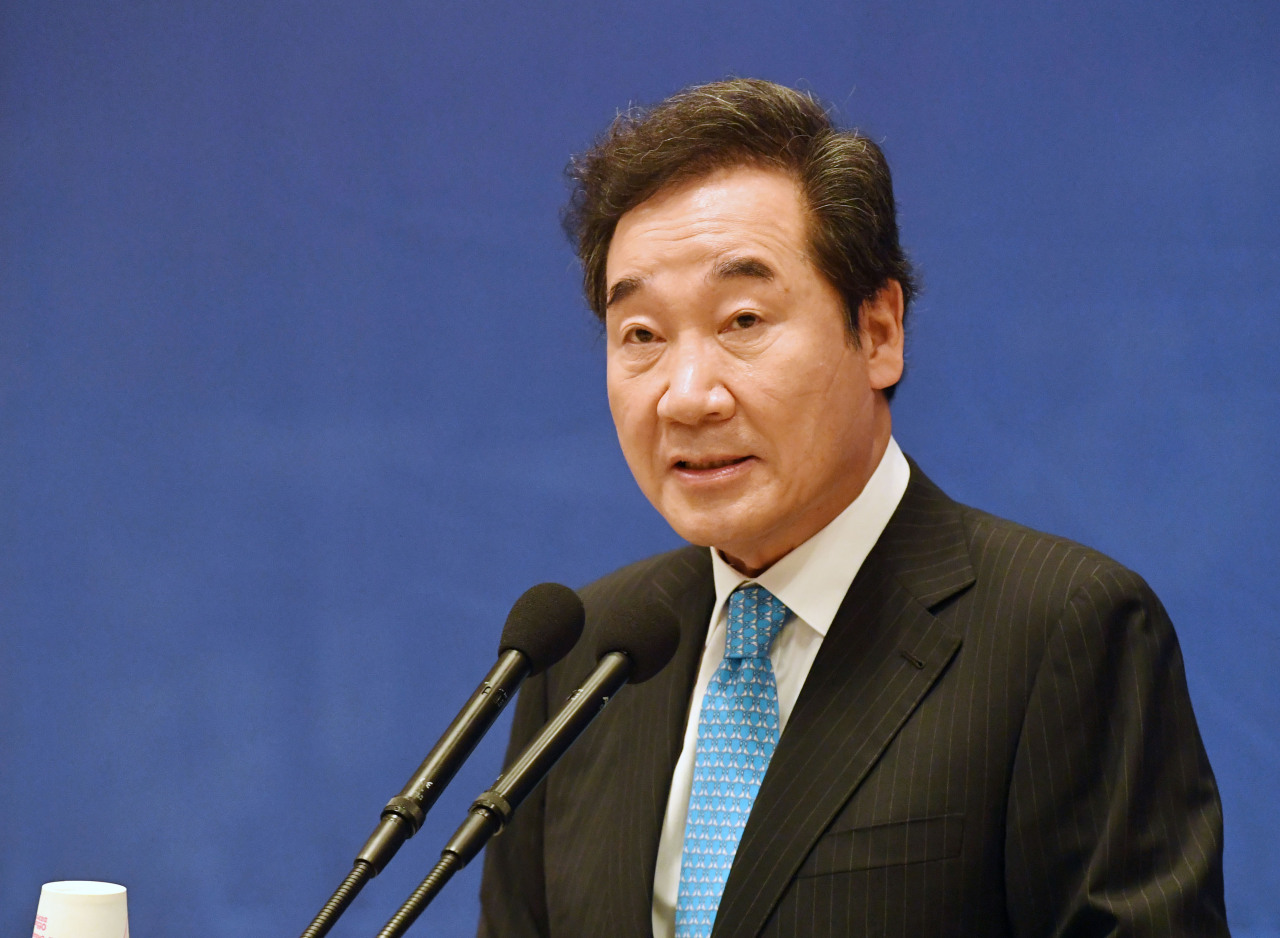Former ruling party leader Lee calls for soft power diplomacy
‘Korea should move towards a soft power with peace, creativity and inclusiveness’
By Shin Ji-hyePublished : June 22, 2021 - 14:44

Rep. Lee Nak-yon, a former Democratic Party leader and presidential hopeful, said Tuesday South Korea should aim for “soft power diplomacy” in line with a global paradigm shift for peace and creativity.
“The paradigm of the world order and development has been changing since the post-cold war era,” Lee said in his keynote speech of an international conference on international order.
“The scope of the territory, the size of the population and military power are becoming less meaningful,” Lee said, adding that instead, demand for creativity has grown.
“The world is moving toward the age of soft power, and this requires high-tech skills, cultural content and an inclusive capacity to share the fruits of development.”
South Korea’s new diplomacy should aim for national development and fulfill its responsibility to the international community as a soft power.
“Based on high-tech industries such as semiconductors and batteries, the Korean Wave and the overall capabilities demonstrated in the COVID-19 crisis, the government should push for mature diplomacy that contributes to peace and prosperity in the global community,” he said.
Lee said the new diplomacy we should aim for is “plaza” diplomacy, which means the nation should move from the “bridge” to the global “plaza.”
“We should not be a country stuck between us, but a country that contributes to the peace and development of mankind in the midst of world politics.”
“Korea should expand its diplomatic space beyond the Korean Peninsula and Northeast Asia to the world. We need to carry out creative diplomacy that forms ‘webs’ and ‘nets’ that connect the world and the Korean Peninsula.”
But before everything, the peace on the Korean Peninsula should be a priority for all that, according to the former DP leader.
“We should achieve the denuclearization of the Korean Peninsula and establish a permanent peace regime. We can no longer leave the North Korean nuclear issue unresolved.”
“We must somehow take a step toward a denuclearization and peace regime on the Korean Peninsula and seek to form a new inter-Korean relationship. Based on the Korea-US global alliance, we need to promote trust between the two Koreas and gain support and cooperation from neighboring countries,” he said.
He called for both South and North Korean authorities to resume dialogue as soon as possible to create a roadmap to implement the agreements made between the leaders of the two Koreas.
The non-face-to-face video conference was attended by 18 scholars and former and current officials from 10 countries around the world, including the US, China and Japan.
During the three sessions, the experts examined the current state of strategic competition between the US and China and North Korea policy and discussed the direction of South Korea’s diplomacy in the future.
In the first session, Richard Fontaine, chief executive officer of the Center for a New American Security, Yuan Peng, president of China Institutes of Contemporary International Relations, Satoshi Morimoto, former Japanese Minister of Defense and Hwang Jae-ho, a professor at Hankuk University of Foreign Studies, discussed US-China strategic competition and future trends.
In the second session, Ning Fukui, former Chinese ambassador to Korea, Abraham Denmark, director of the Asia Program at the Woodrow Wilson International Center for Scholar, and Cho Han-beom, a senior researcher at the Korea Institute for National Unification, dealt with North Korea policy and the overall peace regime on the Korean Peninsula.
In the last session, former EU Ambassador Michael Reiterer and professor Nam Ki-jung of Seoul National University discussed the diplomatic stance of the world’s mid-sized countries and directions for Korea’s diplomacy in the future.
By Shin Ji-hye (shinjh@heraldcorp.com)









![[Hello India] Hyundai Motor vows to boost 'clean mobility' in India](http://res.heraldm.com/phpwas/restmb_idxmake.php?idx=644&simg=/content/image/2024/04/25/20240425050672_0.jpg&u=)









